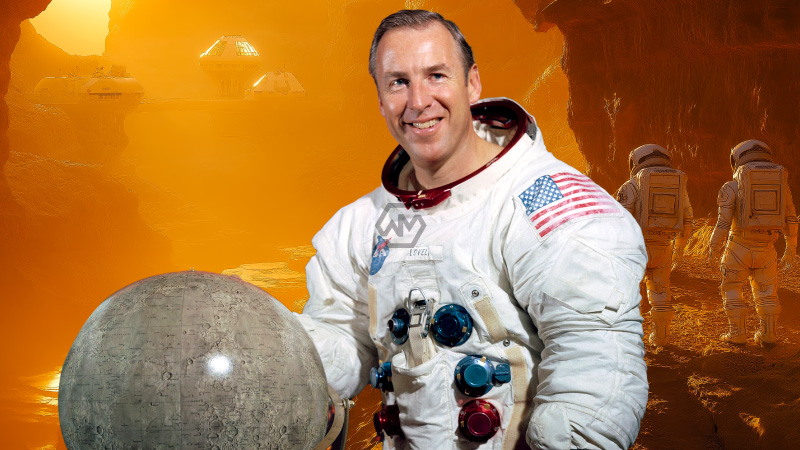- Apollo 13 commander Jim Lovell has passed away, leaving a legacy of courage and innovation.
- Led first human orbit of the Moon on Apollo 8, paving the way for Apollo 11.
- Survived Apollo 13’s near disaster through quick thinking and teamwork.
Jim Lovell, a legendary figure in NASA’s history, has died at the age of 96. His career embodied the spirit of exploration and resilience, from being part of Apollo 8—the first mission to orbit the Moon—to leading the Apollo 13 mission, which turned a catastrophic failure into one of space history’s most celebrated rescues.
NASA acting administrator Sean Duffy paid tribute to Lovell, highlighting his “steadfast courage” and the valuable lessons learned from his missions. Apollo 13, intended to be the third lunar landing, became a survival challenge when an oxygen tank exploded.
From Apollo 8 to Apollo 13: The Enduring Legacy of Jim Lovell
Jim Lovell’s journey to spaceflight began with his service as a naval aviator and test pilot, a role that demanded precision and adaptability—skills that would prove essential during his time at NASA. Selected in the second group of astronauts in 1962, Lovell quickly became known for his technical competence and collaborative approach to mission planning.
His first flight into space came with Gemini 7 in 1965, a mission that set endurance records and demonstrated the viability of long-duration human spaceflight. He later commanded Gemini 12, the final mission of the program, successfully demonstrating key docking and spacewalking techniques critical for the upcoming Apollo missions.
The Apollo 8 mission in 1968 marked a turning point, as Lovell and his crewmates became the first humans to orbit the Moon. This achievement not only showcased NASA’s growing capabilities but also inspired millions during a turbulent period in American history. The mission paved the way for Apollo 11’s successful landing just months later.
Yet, it was Apollo 13 in 1970 that cemented Lovell’s place in history. The mission’s sudden crisis—a crippling oxygen tank explosion—forced NASA and the crew to abandon the Moon landing and fight for survival. Lovell’s leadership was instrumental in guiding the spacecraft back to Earth, a feat that became synonymous with NASA’s problem-solving spirit.
Jim Lovell’s life was a testament to courage, skill, and determination. His contributions not only advanced space exploration but also demonstrated the power of human ingenuity under pressure.
“Failure is not an option.” – This iconic phrase, often associated with Apollo 13, reflects the mindset that defined Lovell’s career and inspired generations.



